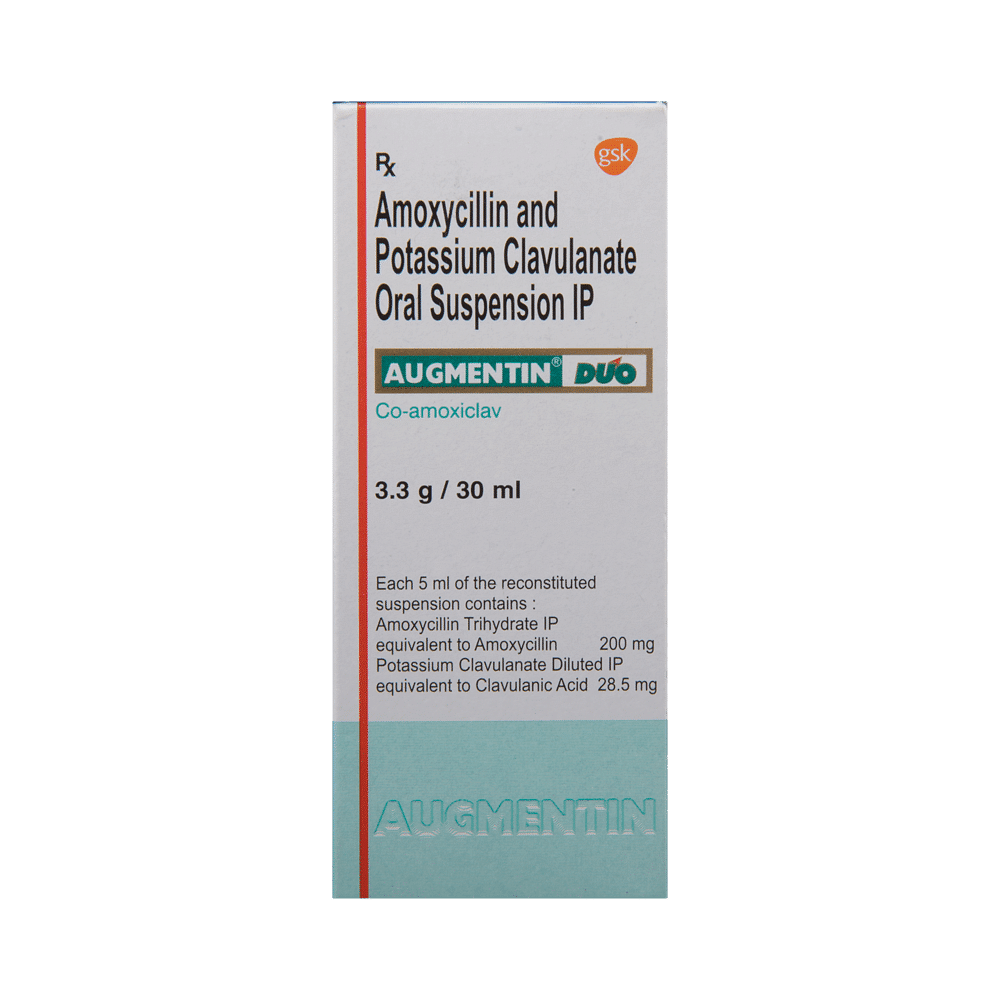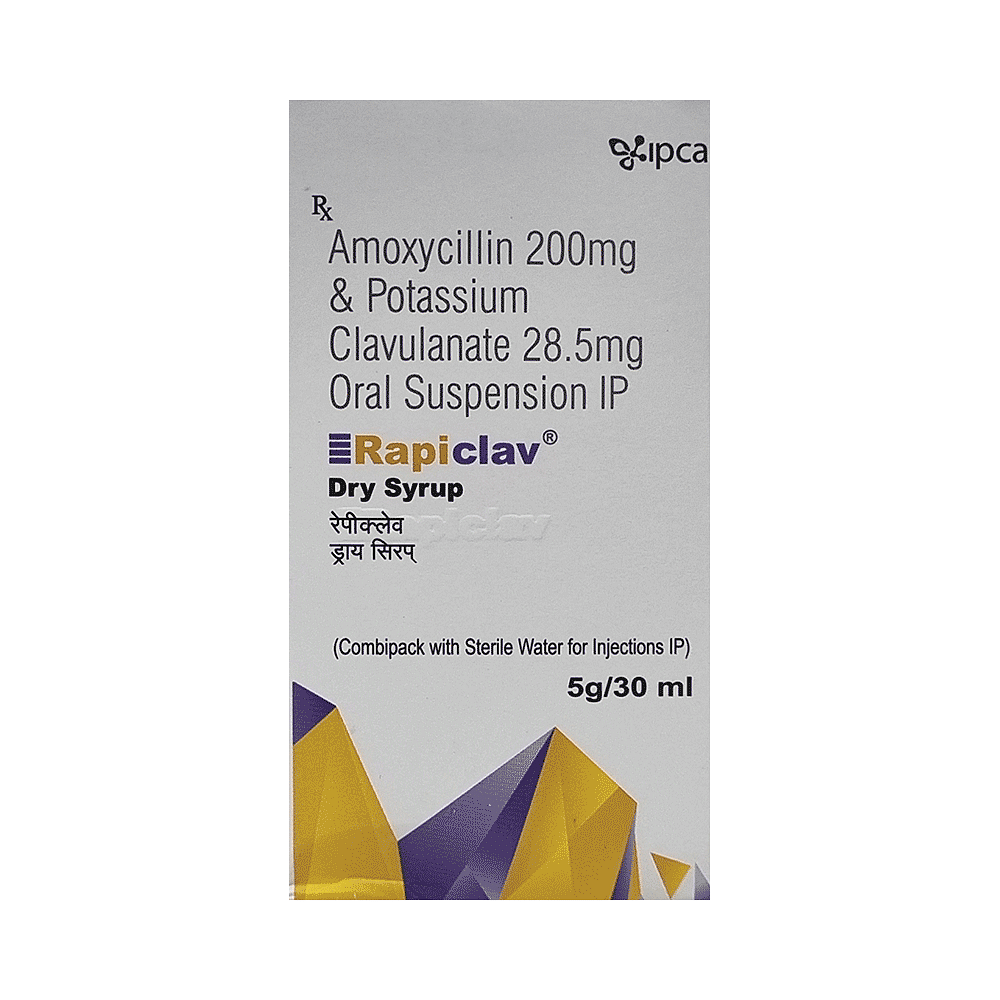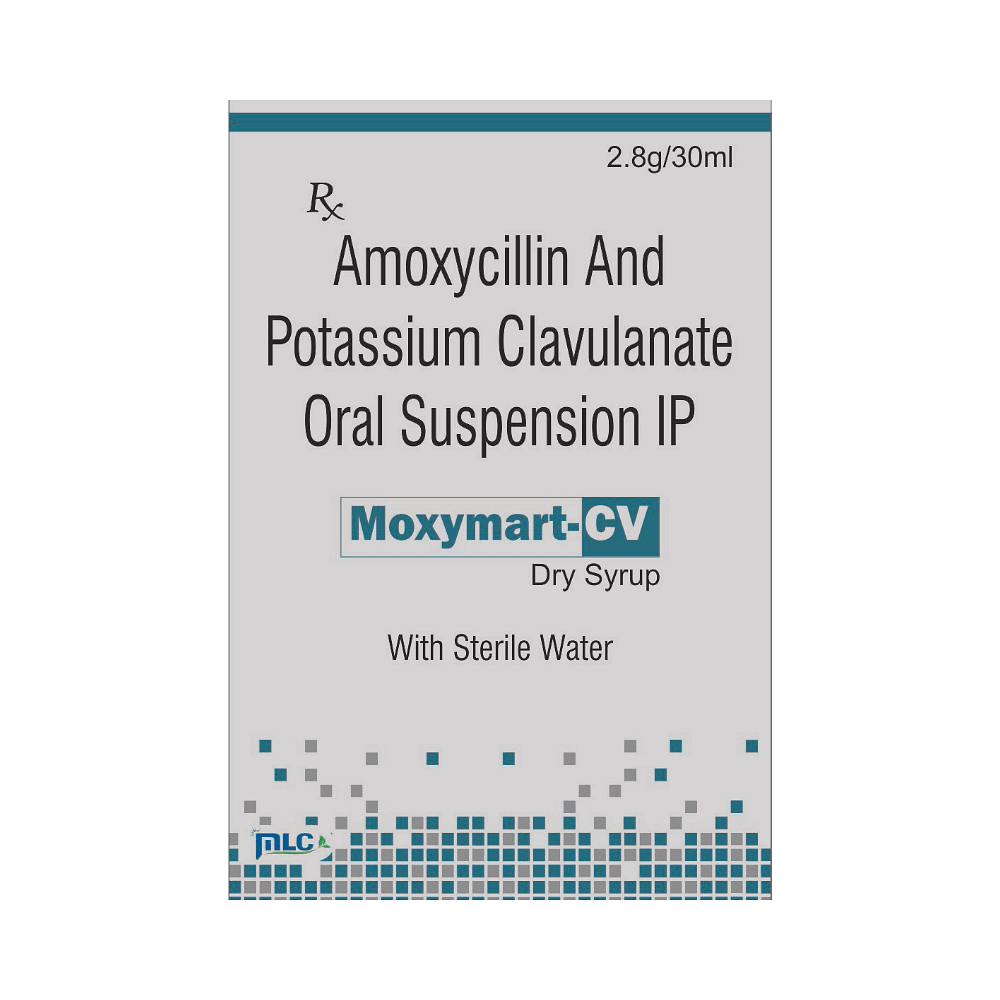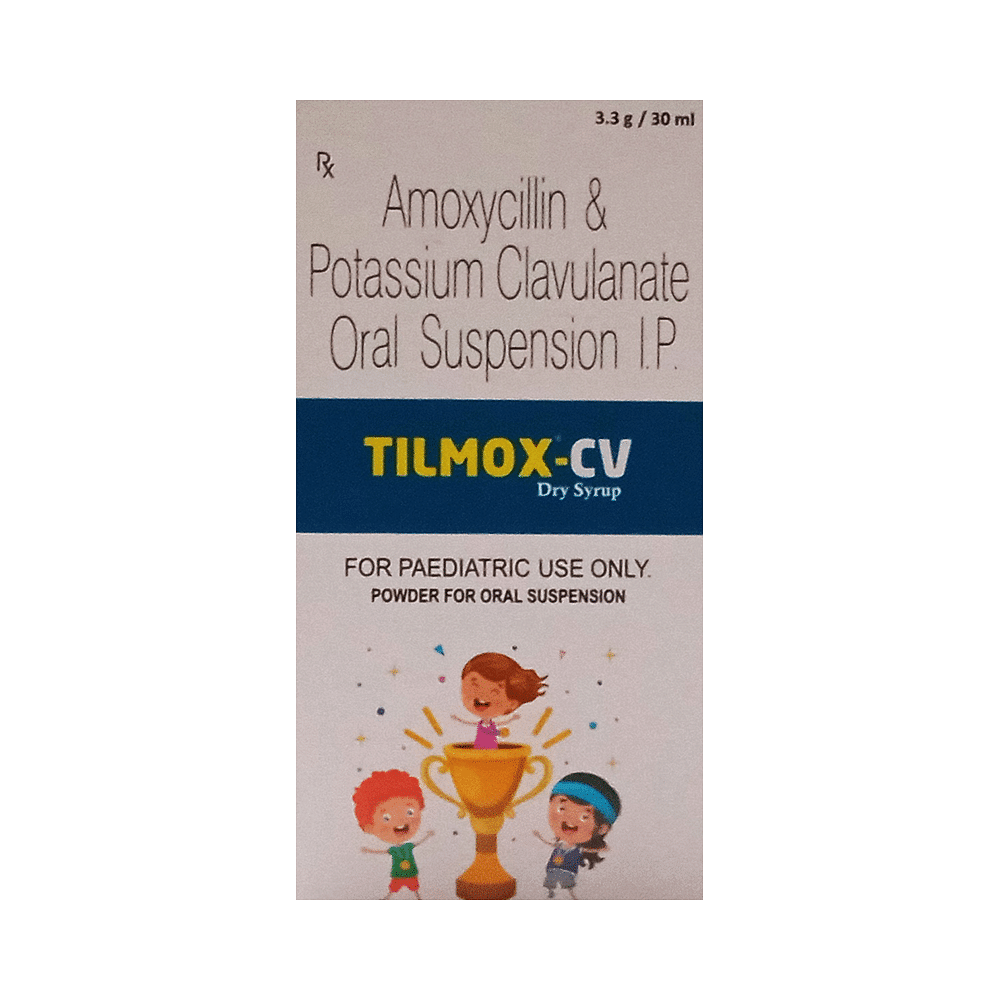
Antigram Dry Syrup
Manufacturer
Pharos Pharmaceuticals
Salt Composition
Amoxycillin (200mg) + Clavulanic Acid (28.5mg)
Key Information
Short Description
Antigram Dry Syrup is an antibiotic medicine that helps treat bacterial infections of the ear, nose, throat, chest, lungs, teeth, skin, and urinary tract.
Dosage Form
Oral Suspension
Introduction
Antigram Dry Syrup is an antibiotic medicine that helps treat bacterial infections of the ear, nose, throat, chest, lungs, teeth, skin, and urinary tract. It is capable of killing bacteria that have become resistant to other therapies and thus also helps treat tuberculosis that is resistant to other treatments.
Directions for Use
Your child must complete the entire course of antibiotics. Stopping too soon may cause the bacteria to multiply again or cause another infection.
Safety Information
Side Effects
Bitter taste in the mouth after intake Diarrhea Itchy rash Facial swelling Breathing difficulty
How it works
Antigram Dry Syrup is an antibiotic. It has two active agents amoxycillin and clavulanic acid. Amoxycillin works by preventing the formation of the bacterial protective covering (cell wall) essential for the survival of the bacteria. Whereas clavulanic acid serves a special purpose of inhibiting an enzyme (beta-lactamase) that is produced by resistant bacteria.
Quick Tips
Your child must complete the entire course of antibiotics Encourage your child to drink plenty of water in case diarrhea develops as a side effect Never give Antigram Dry Syrup until and unless prescribed by the doctor Do not give Antigram Dry Syrup to treat common cold and flu-like symptoms caused by viruses Check 'expiry' before giving Antigram Dry Syrup to your child
Related Medicines

Augmentin Duo Suspension

Eliclav-DS Oral Suspension

Moxiclip Dry Syrup

Moximent-CV Dry Syrup

Amxclavin Safe DS Oral Suspension

Rapiclav DS Oral Suspension

Moxymart-CV Dry Syrup

Axelog-CV Dry Syrup

Tilmox-CV Dry Syrup

Moxraj CV Oral Suspension
Frequently asked questions
Can other medicines be taken at the same time as Antigram Dry Syrup?
Antigram Dry Syrup may interact with other medications. It is important to inform your child's doctor about all other medications or substances your child is taking before starting this medication. It is also recommended to check with your child's doctor before giving any medicine to your child.
Can I get my child vaccinated while on treatment with Antigram Dry Syrup?
Antibiotics generally do not interfere with vaccine ingredients or cause a negative reaction in children after vaccination. However, it is best to postpone vaccination until your child has recovered from any illness if the treatment involves antibiotics.
Which lab tests may my child undergo while taking Antigram Dry Syrup long-term?
Periodically, the doctor might order kidney and liver function tests for children taking this medication long-term to monitor their condition.
Can I give a higher than the recommended dose of Antigram Dry Syrup to my child?
No, exceeding the prescribed dose of this medicine can increase side effect risks. If your child experiences worsened symptoms, consult your doctor for re-evaluation.
Can I stop giving Antigram Dry Syrup to my child when symptoms are relieved?
No, do not discontinue the medication without complete treatment. The symptoms may improve before infection is fully cleared. Therefore, continue the full course as it might still have beneficial effects.
Can the use of Antigram Dry Syrup cause diarrhea?
Yes, Antigram Dry Syrup can cause diarrhea. It works by killing harmful bacteria. This can also disrupt the balance of helpful bacteria in your child's stomach, leading to diarrhea. Encourage your child to drink fluids such as water or other healthy beverages if they experience diarrhea. If symptoms persist and you observe signs of dehydration (such as reduced urination with dark urine), consult your doctor before administering any other medication without their guidance.
Do all viral common colds result in secondary bacterial infection?
Usually, bacterial infections do not follow viral infections. Antibiotics should only be used after consulting a doctor to address potential complications and prevent side effects.
The mucus coming out of my child’s nose is yellow-green. Is it a sign of a bacterial infection?
Yellow or green mucus in the nose does not necessarily indicate a need for antibiotics. A common cold often results in mucus thickening and color changes from clear to yellow or green. Symptoms usually last for 7-10 days.
Is there any sign which shows that my child needs immediate medical attention?
Call your child’s doctor immediately if you notice serious allergic reactions (breathing difficulties, skin rash), gastrointestinal issues (diarrhea), and liver damage (weakness, paleness, vomiting). These symptoms are rare but require immediate medical attention.


